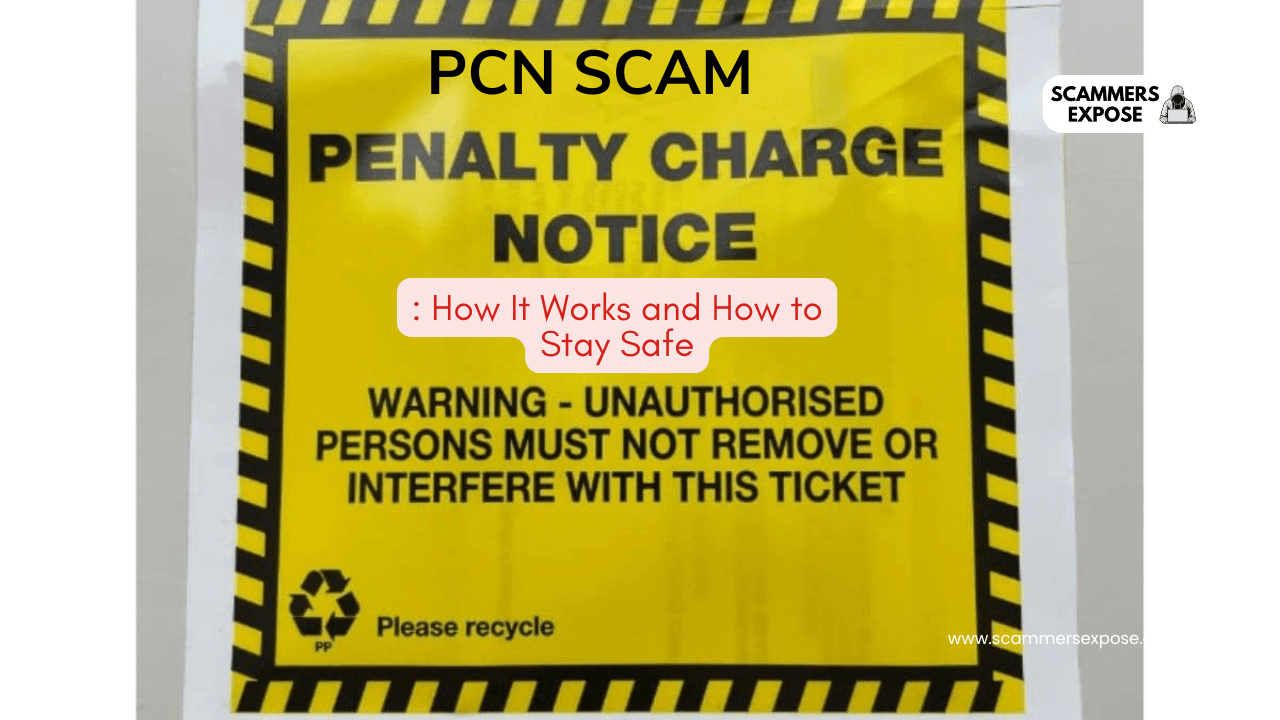Scam awareness is more important than ever in our digitally connected world. As scams become increasingly sophisticated, it’s vital to stay informed and vigilant. This blog post will provide nine essential tips to enhance your scam awareness and protect yourself from various types of fraud.
- Understanding Scam Awareness
- The Importance of Scam Awareness
- Common Types of Scams
- Identifying Red Flags: Signs of a Scam
- How to Protect Yourself from Scams
- Reporting Scams: Steps and Resources
- Educating Others: Spreading Scam Awareness
- Real-Life Examples of Scams
- Staying Updated: Latest Scam Trends and News
Understanding Scam Awareness
Scam awareness is crucial in today’s digital age, where fraudulent activities are rampant. Understanding what scam awareness entails is essential to safeguarding your personal and financial information.
What is Scam Awareness?
Scam awareness refers to the knowledge and understanding of scammers’ various tactics and strategies for deceiving individuals. It helps individuals recognize, avoid, and report fraudulent activities.
Importance of Scam Awareness
Staying informed about scam awareness can:
- Prevent Financial Loss: Recognizing scams early can save you from losing money.
- Protect Personal Information: Scam awareness helps protect your sensitive information from misuse.
- Enhance Digital Safety: It promotes safe online practices, reducing the risk of falling victim to cyber scams.
Vital Elements of Scam Awareness
To effectively practice scam awareness, consider these key elements:
- Education: Stay informed about different types of scams and how they operate.
- Vigilance: Always be cautious when dealing with unknown contacts, primarily online.
- Verification: Double-check the legitimacy of offers, requests, and contacts before acting.
Benefits of Scam Awareness
- Empowerment: Scam awareness empowers individuals to make informed decisions and avoid fraudulent schemes.
- Community Safety: By spreading scam awareness, you contribute to your community’s overall safety and well-being.
- Early Detection: Increased scam awareness leads to early detection and prevention of scams, reducing potential harm.
Enhancing Scam Awareness
To improve your scam awareness:
- Stay Updated: Regularly read articles, attend webinars and follow trusted sources on the latest scam trends.
- Share Information: Educate friends and family about the importance of scam awareness.
- Report Scams: Reporting scams to relevant authorities helps track and prevent further fraudulent activities.
Scam awareness is not just a personal safeguard but a collective effort to create a safer environment for everyone. By understanding and practicing scam awareness, you can protect yourself and others from scams’ detrimental effects.
The Importance of Scam Awareness
Scam awareness plays a vital role in protecting individuals and communities from scammers’ ever-evolving threats. Understanding the importance of scam awareness can help you stay safe and secure in a digital world where scams are increasingly sophisticated.
Why Scam Awareness Matters
Scam awareness is crucial for several reasons:
- Financial Protection: Being aware of scams can prevent significant economic losses. Scammers often target individuals and businesses, resulting in stolen money and compromised bank accounts.
- Identity Theft Prevention: Scam awareness helps protect personal information from fraudulent use. Scammers often seek out sensitive data to commit identity theft.
- Mental Health: Falling victim to a scam can lead to stress, anxiety, and a loss of trust. Scam awareness can help prevent these negative impacts on mental health.
- Informed Decision-Making: With scam awareness, individuals can make informed decisions and avoid falling prey to deceitful schemes.
The Broader Impact of Scam Awareness
- Community Safety: Communities become safer when more people are aware of scams. Scam awareness spreads, making it harder for scammers to find victims.
- Economic Stability: Reducing the prevalence of scams contributes to financial stability by protecting consumer confidence and ensuring fair market practices.
- Public Trust: Scam awareness fosters trust in online transactions, business dealings, and communication channels, which is essential for the digital economy.
Key Areas to Focus on for Scam Awareness
To effectively promote scam awareness, focus on these critical areas:
- Education and Training: Participate in workshops, webinars, and training sessions on scam awareness. Stay informed about the latest scam tactics.
- Communication: Share information about scam awareness with friends, family, and colleagues. Discuss recent scams and how to avoid them.
- Reporting Mechanisms: Understand how and where to report scams. Prompt reporting can help authorities track and stop scammers.
- Use of Technology: Utilize security software, two-factor authentication, and other technological tools to enhance scam awareness and protection.
Practical Steps to Enhance Scam Awareness
- Stay Informed: Regularly update yourself on new scams through reputable sources. Knowledge is a key component of scam awareness.
- Be Skeptical: Approach unsolicited offers, requests for personal information, and too-good-to-be-true deals with skepticism.
- Verify Information: Always verify the legitimacy of emails, phone calls, and websites before providing personal information.
- Educate Others: Spread scam awareness by educating those around you. The more people know about scams, the less effective scammers will be.
Scam awareness is essential for safeguarding personal and financial well-being. By understanding its importance and taking proactive measures, you can protect yourself and contribute to a more secure community. Prioritizing scam awareness helps build a safer and more trustworthy digital environment.
Common Types of Scams
Understanding common types of scams is a fundamental aspect of scam awareness. Scammers use various tactics to deceive individuals and steal their money or personal information. By familiarizing yourself with these common scams, you can better protect yourself and others.
Phishing Scams
Phishing scams are one of the most prevalent types of scams. They involve scammers sending fraudulent emails, messages, or websites that appear to be from legitimate sources.
- Fake Emails: Often from trusted organizations like banks or government agencies.
- Phishing Websites: Fake websites that mimic legitimate ones to steal login credentials.
- SMS Phishing: Text messages that contain links to malicious sites or ask for personal information.
Online Shopping Scams
With the rise of e-commerce, online shopping scams have become increasingly common. Scam awareness in online shopping can save you from financial loss.
- Fake Online Stores: Websites that look legitimate but are set up to steal money and never deliver goods.
- Non-Delivery Scams: Sellers that take payment and never send the product.
- Payment Fraud: Scammers requesting unconventional payment methods like wire transfers or gift cards.
Romance Scams
Romance scams target individuals on dating sites or social media platforms. Scammers build fake relationships to gain trust and then exploit it.
- Emotional Manipulation: Scammers create emotional bonds and then ask for money.
- Fake Profiles: Using attractive photos and fabricated stories to lure victims.
- Urgent Requests: Sudden financial requests citing emergencies or travel expenses.
Lottery and Prize Scams
Lottery and prize scams deceive people by claiming they have won a prize or lottery they never entered. Scam awareness can help you identify these false claims.
- Advance Fee Fraud: Asking for a fee to claim a non-existent prize.
- Personal Information Theft: Requesting sensitive information to process the prize.
Tech Support Scams
Tech support scams involve scammers posing as tech support agents from reputable companies, claiming a problem with your computer.
- Unsolicited Calls: Receiving a call about a problem you were unaware of.
- Remote Access: Scammers ask to access your computer to “fix” issues remotely.
- Payment Requests: Requesting payment for unnecessary services or software.
Investment Scams
Investment scams promise high returns with little risk. Being aware of these scams can prevent significant financial losses.
- Ponzi Schemes: Paying returns to earlier investors with the capital of newer investors.
- Fake Investments: Offering opportunities in non-existent or worthless ventures.
- Pressure Tactics: Pushing for immediate decisions without time for research.
Identity Theft Scams
Identity theft involves stealing personal information to commit fraud. Scam awareness is crucial in protecting your identity.
- Data Breaches: Hacking into databases to steal personal information.
- Mail Theft: Stealing mail to obtain personal documents.
- Social Engineering: Manipulating individuals into revealing personal information.
By understanding these common types of scams, you can enhance your scam awareness and take proactive steps to protect yourself. Recognizing the signs of these scams and staying informed are key strategies in safeguarding your personal and financial well-being.
Identifying Red Flags: Signs of a Scam
Developing scam awareness involves identifying red flags that indicate a potential scam. Scammers often use similar tactics to deceive their victims, and recognizing these signs can help you avoid falling into their traps.
Unsolicited Communication
Unsolicited communication is one of the primary signs of a scam. Scam awareness includes being cautious of unexpected contacts.
- Unexpected Emails or Messages: Emails, texts, or social media messages from unknown sources.
- Unsolicited Phone Calls: Calls claiming to be from reputable organizations without prior contact.
- Pop-Up Warnings: Sudden pop-ups on your computer or mobile device warning of security issues.
Urgency and Pressure Tactics
Scammers often create a sense of urgency to pressure victims into making hasty decisions.
- Limited-Time Offers: Claims that you must act quickly to secure a deal or prize.
- Emergency Situations: Requests for immediate help, often involving a crisis or emergency.
- Threats and Scare Tactics: Threatening legal action, account suspension, or other severe consequences if immediate action is not taken.
Requests for Personal Information
Scam awareness involves recognizing when someone is asking for too much information.
- Sensitive Information: Requests for your Social Security number, bank account details, or passwords.
- Verification Scams: Claiming they need to verify your identity or account information.
- Unusual Payment Methods: Asking for payment via wire transfers, gift cards, or cryptocurrency.
Too Good to Be True Offers
Offers that seem too good to be true often are. Scam awareness helps you spot these unrealistic promises.
- High Returns with Low Risk: Investment opportunities guarantee high returns with little or no risk.
- Free Prizes or Gifts: Claims that you have won a prize or gift without entering any contest.
- Employment Scams: Job offers with high salaries for minimal work or without a proper interview process.
Poor Grammar and Spelling
Many scam communications contain grammatical and spelling mistakes, which can be red flags.
- Unprofessional Language: Emails or messages that lack professionalism and contain apparent errors.
- Inconsistent Branding: Communications that do not match the branding or style of the claimed organization.
Verification and Authentication Issues
Scam awareness includes the importance of verifying the authenticity of requests and offers.
- Fake Websites: Websites that look legitimate but slightly differ in the URL or design.
- Suspicious Links: Links that do not match the website they claim to be from or direct you to unfamiliar sites.
- No Verification Processes: Companies or individuals that do not provide a way to verify their identity or credentials.
Inconsistent Information
Scammers often provide inconsistent or conflicting information.
- Contradictory Details: Information that does not align with what you know or have been told previously.
- Vague Explanations: Providing unclear or evasive answers to your questions.
By identifying these red flags, you can enhance your scam awareness and protect yourself from falling victim to scams. Staying vigilant and questioning suspicious activities are essential components of effective scam awareness. These signs can help you avoid scams and safeguard your personal and financial information.
How to Protect Yourself from Scams
Enhancing your scam awareness is crucial in protecting yourself from today’s numerous scams. Implementing effective strategies can help safeguard your personal and financial information.
Strengthen Your Scam Awareness
Educating yourself about common scams and how they operate is the first step in protection.
- Stay Informed: Regularly read articles, attend webinars, and follow trusted sources for the latest scam trends.
- Learn from Others: Pay attention to news stories and warnings about new scams.
Secure Your Personal Information
Keeping your personal information secure is vital in preventing scams.
- Limit Sharing: Avoid sharing personal information on social media or with unverified sources.
- Use Strong Passwords: Create complex passwords and change them regularly.
- Enable Two-Factor Authentication: Add an extra layer of security to your accounts.
Verify Before Trusting
Scam awareness involves verifying the legitimacy of requests and offers before taking action.
- Check Sources: Verify the identity of the person or organization contacting you.
- Look for Official Channels: Use official websites and contact numbers to confirm legitimacy.
- Research Offers: Investigate any offers or deals that seem too good to be true.
Be Cautious with Communication
Scammers often use communication channels to deceive their victims. Enhancing scam awareness can help you recognize these tactics.
- Ignore Unsolicited Messages: Do not respond to unexpected emails, texts, or calls.
- Beware of Attachments and Links: Avoid clicking suspicious attachments or links in emails and messages.
- Hang Up on Robocalls: If you receive an automated call asking for personal information, hang up immediately.
Monitor Financial Accounts
Regularly monitoring your financial accounts is an essential part of scam awareness.
- Check Statements: Review bank and credit card statements for unauthorized transactions.
- Set Up Alerts: Enable alerts for any unusual activity on your accounts.
- Report Suspicious Activity: Contact your bank or financial institution immediately if you notice suspicious transactions.
Use Technology Wisely
Leveraging technology can enhance your scam awareness and protect you from scams.
- Install Security Software: Use antivirus and anti-malware software to protect your devices.
- Update Regularly: Keep your software and operating systems up to date to prevent vulnerabilities.
- Use Secure Connections: Ensure you are on a secure network when conducting sensitive activities online.
Educate and Spread Awareness
Sharing your knowledge about scams can help protect others.
- Inform Family and Friends: Talk to those around you about common scams and how to avoid them.
- Participate in Community Programs: Engage in local or online groups focused on scam awareness.
- Report Scams: Report any scams you encounter to relevant authorities to help prevent others from falling victim.
By following these strategies, you can significantly enhance your scam awareness and protect yourself from potential scams. Being proactive and cautious in your daily online and offline interactions is essential in safeguarding your personal and financial information.
Reporting Scams: Steps and Resources
Reporting scams is a crucial aspect of scam awareness. It not only helps protect you but also prevents others from becoming victims. By understanding the steps and resources available for reporting scams, you can contribute to a safer community.
Why Reporting Scams is Important
Scam awareness includes knowing the significance of reporting scams:
- Stopping Scammers: Reporting helps authorities track and stop scammers.
- Raising Awareness: Alerts others about active scams, increasing overall scam awareness.
- Legal Action: Enables law enforcement to take action against scammers.
- Protecting Others: Reduces the number of potential victims by spreading scam awareness.
Steps to Report a Scam
Taking the proper steps to report a scam is essential in ensuring effective action is taken.
- Gather Information: Collect all relevant information, including emails, messages, phone numbers, and transaction details.
- Document Evidence: Keep records of all communications and transactions related to the scam.
- Identify Authorities: Know which authorities to contact depending on the type of scam.
Reporting to Authorities
Scam awareness includes knowing where to report different types of scams.
- Local Law Enforcement: Contact your police department for immediate threats or financial losses.
- Federal Trade Commission (FTC): Report consumer fraud and identity theft scams.
- Internet Crime Complaint Center (IC3): Report cybercrimes and online scams.
- Better Business Bureau (BBB): File complaints about businesses involved in scams.
Using Online Platforms
Many online platforms have specific processes for reporting scams.
- Social Media Sites: Use built-in reporting tools on social media platforms to report fraudulent accounts and posts.
- Email Providers: Report phishing emails to your email provider.
- E-commerce Websites: Contact customer service to report scams on sites like eBay, Amazon, and others.
Protecting Yourself While Reporting
Maintaining your safety while reporting scams is a crucial part of scam awareness.
- Avoid Sharing Personal Information: Do not provide more personal information than necessary when reporting.
- Use Secure Channels: Report scams through official and secure channels.
- Stay Anonymous: When possible, report scams anonymously to protect your identity.
Resources for Reporting Scams
Several resources are available to help you report scams effectively.
- National Consumer League (NCL): Provides a Fraud Center for reporting scams.
- AARP Fraud Watch Network: Offers tools and resources for reporting and learning about scams.
- Federal Trade Commission (FTC): Provides detailed guidance on reporting various scams.
Follow-Up Actions
After reporting a scam, follow up to ensure proper action is taken.
- Track Your Report: Record your report and any reference numbers provided.
- Follow-up: Contact the reporting agency for updates on your case.
- Share Your Experience: Enhance scam awareness by sharing your experience with others.
By understanding and following these steps, you can effectively report scams and contribute to enhancing scam awareness. Reporting scams helps you protect your community and promotes a safer online environment.
Educating Others: Spreading Scam Awareness
Educating others about scam awareness is vital in creating a safer and more informed community. By sharing knowledge and resources, you can help protect those around you from falling victim to scams. Here’s how you can effectively spread scam awareness.
Importance of Educating Others
Understanding why it’s crucial to educate others about scam awareness can motivate you to take action:
- Community Safety: Increases overall safety and reduces the number of victims.
- Empowerment: Empowers individuals with the knowledge to recognize and avoid scams.
- Prevention: Prevents financial and emotional harm caused by scams.
Sharing Information
Sharing information about it is one of the most effective ways to educate others.
- Social Media: Use social media platforms to share articles, videos, and tips about it.
- Email Newsletters: Include scam awareness information in your newsletters to reach a broader audience.
- Blogs: Write blog posts or guest articles focusing on various aspects of scam awareness.
Hosting Workshops and Seminars
Organizing educational events can significantly enhance scam awareness.
- Community Workshops: Host workshops in your local community center to educate people about common scams and prevention methods.
- Online Webinars: Conduct webinars to reach a wider audience, especially those who cannot attend in person.
- School Programs: Collaborate with schools to incorporate it into their curriculum.
Collaborating with Organizations
Partnering with organizations can amplify your efforts to spread scam awareness.
- Local Businesses: Work with local businesses to provide scam awareness training for their employees.
- Non-Profits: Collaborate with non-profit organizations focused on consumer protection and scam awareness.
- Government Agencies: Partner with agencies to distribute scam awareness materials and resources.
Providing Resources
Offering resources is a practical way to enhance scam awareness.
- Printed Materials: Distribute brochures, flyers, and posters with information about scam awareness.
- Online Resources: Create a website or a dedicated page with resources, including articles, videos, and links to reporting tools.
- Helplines: Provide contact information for helplines where people can report scams or seek advice.
Encouraging Open Conversations
Encouraging open conversations about scams can help normalize discussing and reporting these incidents.
- Family Discussions: Talk to family members about common scams and how to avoid them.
- Workplace Meetings: Bring it up and encourage colleagues to share their experiences.
- Community Forums: Participate in community forums and discussion groups to talk about it.
Utilizing Media
Leveraging various media channels can broaden your reach.
- Radio and TV: Participate in radio shows or TV segments to discuss scam awareness.
- Podcasts: Start or join podcasts focused on consumer protection and scam prevention.
- Newspapers: Write articles or letters to the editor about the importance of scam awareness.
Leading by Example
Leading by example is one of the most powerful ways to spread scam awareness.
- Practice Scam Awareness: Demonstrate it daily by being cautious and reporting scams.
- Share Personal Experiences: Share your experiences with scams to illustrate the importance of it
- Support Victims: Offer support and guidance to scam victims, helping them report incidents and recover.
By actively educating others and spreading the word, you can contribute to a safer and more informed community. The more people know about scams and how to avoid them, the less effective scammers will be. Take the initiative to share your knowledge and resources and encourage others to do the same.
Real-Life Examples of Scams
Understanding real-life examples of scams can significantly enhance it. These examples illustrate how scams operate, and the tactics scammers use to deceive their victims. By studying these cases, you can better protect yourself and others.
Phishing Scams
Phishing scams are among the most common types of scams. They often involve fraudulent emails or messages that appear to come from reputable sources.
- Example: A victim receives an email that looks like it’s from their bank, asking them to verify their account details by clicking on a link. The link leads to a fake website that captures their login credentials.
- Scam Awareness Tip: Always verify the sender’s email address and never click on suspicious links. Contact your bank directly to verify any requests.
Online Shopping Scams
Online shopping scams trick consumers into buying products that either don’t exist or significantly differ from what was advertised.
- Example: A consumer purchases a high-end electronic device from a legitimate online store. The product never arrives, and the store disappears.
- Scam Awareness Tip: Only shop on reputable websites and check for reviews and ratings. Be cautious of deals that seem too good to be true.
Romance Scams
Romance scams exploit individuals looking for relationships by building fake emotional connections and asking for money.
- Example: A scammer creates a fake profile on a dating site and develops a relationship with the victim. After gaining their trust, they claim to need money for a medical emergency or travel expenses.
- Scam Awareness Tip: Be cautious of online relationships that progress quickly and involve requests for money. Verify the person’s identity through video calls or in-person meetings.
Lottery and Prize Scams
These scams inform victims that they have won a lottery or prize but must pay a fee to claim it.
- Example: A victim receives a phone call or email stating they’ve won significant money but must pay taxes or fees upfront to receive the prize.
- Scam Awareness Tip: Legitimate lotteries do not require payment to claim winnings. Do not send money or provide personal information to claim a prize you didn’t enter.
Tech Support Scams
Tech support scams involve scammers pretending to be from a reputable tech company, claiming that your computer has a virus or issue.
- Example: A victim receives a call from someone claiming to be from Microsoft, stating their computer has a virus. The scammer asks for remote access and payment to fix the problem.
- Scam Awareness Tip: Legitimate tech companies do not make unsolicited support calls. Hang up and contact the company directly using official contact information.
Investment Scams
Investment scams promise high returns with little risk, enticing victims to invest in fraudulent schemes.
- Example: A victim is approached with an investment opportunity in a new, revolutionary product that promises significant returns. After investing a large sum, the scammer disappears, and the investment is worthless.
- Scam Awareness Tip: Research any investment opportunity thoroughly. Be wary of high-pressure sales tactics and guarantees of high returns with no risk.
Identity Theft Scams
Identity theft scams involve stealing personal information to commit fraud, such as opening credit accounts or making unauthorized purchases.
- Example: A victim receives a call from someone claiming to be from their bank, asking for their Social Security number and account details to verify suspicious activity. The information is then used to commit fraud.
- Scam Awareness Tip: Never give out personal information over the phone or online unless you know the recipient’s identity. Monitor your accounts regularly for suspicious activity.
By understanding these real-life examples of scams, you can enhance your scam awareness and protect yourself from falling victim to similar schemes. Recognizing the tactics used by scammers is crucial in avoiding potential scams and safeguarding your personal and financial information.
Staying Updated: Latest Scam Trends and News
Staying updated on the latest scam trends and news is crucial for maintaining it. Scammers continually evolve their tactics, making it essential to stay informed to protect yourself and others.
Why Staying Updated is Important
Understanding the importance of staying updated can enhance your scam awareness:
- Anticipate New Scams: Awareness of new scams helps you recognize and avoid them.
- Protect Personal Information: Knowledge of current scams enables you to better protect sensitive information.
- Assist Others: Sharing the latest scam trends helps protect your community.
Sources for the Latest Scam News
Several reliable sources can help you stay informed about the latest scam trends:
- Government Websites: Agencies like the Federal Trade Commission (FTC) regularly update their websites with the latest scam alerts.
- Consumer Protection Organizations: Organizations like the Better Business Bureau (BBB) provide updates on new scams and fraud tactics.
- News Outlets: Reputable news sources often report on emerging scams and fraudulent activities.
Common Trends in Scams
Understanding common trends can improve your scam awareness:
- COVID-19 Related Scams: Scammers exploit the pandemic by offering fake vaccines, testing kits, and financial aid.
- Cryptocurrency Scams: With the rise of digital currencies, scams involving fake investments and crypto exchanges are increasing.
- E-commerce Scams: As online shopping grows, scams involving fake websites and non-delivery goods are more prevalent.
How to Stay Updated
Implement these strategies to keep your scam awareness current:
- Subscribe to Newsletters: Sign up for newsletters from consumer protection agencies and organizations to receive regular updates.
- Follow on Social Media: Follow reliable sources on social media for real-time scam alerts and news.
- Join Online Forums: Participate in forums and communities focused on scam awareness to share and receive information.
Enhancing Scam Awareness in Daily Life
Incorporating it into your daily routine can help you stay vigilant:
- Regularly Check Updates: Make it a habit to check for the latest scam news weekly.
- Educate Yourself Continuously: Attend webinars, read articles, and watch videos about scam trends.
- Use Technology: Install apps and software that provide scam alerts and protect against fraudulent activities.
Reporting New Scams
Staying updated also involves contributing to it by reporting new scams:
- Report to Authorities: Inform local law enforcement or federal agencies about new scam activities.
- Use Online Platforms: Many platforms have reporting tools to flag suspicious activities and scams.
- Share Experiences: Discuss new scams in forums and social media to alert others.
Preparing for Future Scams
Anticipating future scams can further enhance your scam awareness:
- Stay Skeptical: Always approach unsolicited offers and requests with skepticism.
- Verify Information: Double-check the legitimacy of new websites, businesses, and contacts.
- Educate Others: Continuously inform friends and family about the latest scam trends and prevention tips.
By staying updated on the latest scam trends and news, you can enhance your scam awareness and protect yourself from evolving threats. Knowledge is a powerful tool in the fight against scams, and staying informed is vital to maintaining a secure and scam-free environment. Regularly checking reliable sources and sharing information with others ensures a well-informed community capable of identifying and avoiding scams.










Leave a Reply